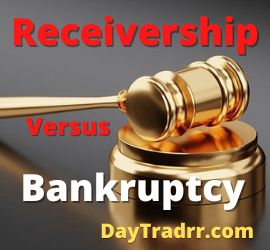What Does it Mean to Boil the Ocean?
 To boil the ocean is an idiomatic phrase. An idiom is a phrase that means something different than its literal translation. Boiling the ocean means undertaking an impossible task or project or making a job or project unnecessarily difficult. The phrase appears in business as well as in other social settings. It can be considered to be a negative phrase in relation to how one approaches a task.
To boil the ocean is an idiomatic phrase. An idiom is a phrase that means something different than its literal translation. Boiling the ocean means undertaking an impossible task or project or making a job or project unnecessarily difficult. The phrase appears in business as well as in other social settings. It can be considered to be a negative phrase in relation to how one approaches a task.
Boil the Ocean – A Closer Look
In the literal sense, boiling the ocean is impossible. Face it, there’s too much water for boiling it to be remotely feasible. As a result, boiling the actual ocean would be an impossible task. When applied to groups or projects, the phrase can simply mean making something so broad or complicated that the objective becomes impossible. T0 boil the ocean has the additional connotation of going to extremes. It implies the objective delves into such minute detail that a project becomes impossible.
What Does Boil the Ocean Mean in Business?
In business, the expression implies that you should keep your problem-solving scope tight. As a result, focus on little chunks at a time rather than the entire outcome. Avoid getting too caught up in specifics over a wide range of concerns. However, when it comes to tackling large corporate problems, the objective can appear overwhelming. To solve the most difficult and intricate problems, it can often feel like one needs to boil the ocean.
In addition to undertaking an impossible or implausible endeavor, the phrase is frequently used in group situations. It is an expression that is intended to try to regulate and bring focus to an out-of-control discussion.
Don’t Boil the Ocean
Project managers and corporate executives need to be particularly aware of deliverables, project scope, and achievable goals. Management can avoid boiling the ocean by focusing on the most important aspects of a project. Ensure that you have the necessary team and resources in place before beginning a project. Then, divide enormous tasks into smaller sections, completing steps rather than an epic monolith. It’s vital to stay focused on the main aspects of a project and not allow it to get away from you or your team. Creating boundaries with the available resources can help. Also, quash any attempts to increase the scope of the project once the objective is defined and agreed upon. Clear agendas, a timeframe, and frequent discussions about the status of a project will further assist in a successful outcome.
How to Avoid Boiling the Ocean
- Prioritize – It is acceptable to solicit feedback from the whole group. Once agreed, prioritize the work and services that the team will undertake. Begin with the services that result in the highest bang-for-your-buck. Provide business leaders with rudimentary visibility into all of the group’s activities.
- Set expectations – Maintain credibility throughout the project. Be explicit about what deliverables you will provide when to expect them. This can include extensive explanations regarding exactly how things will play out. In a vacuum, others tend to fill in the spaces with their own definitions and assumptions. Don’t let that happen. Make it clear who, what, when, where, how, and why you are doing what you are doing. In this way, others know what to expect from you.
- Break it down – Break down the body of work into chunks that you can complete in a relatively short amount of time. This can help make the big not seem so big. Then, schedule and manage as you would any other project. As required, break down the barriers and ultimately be accountable for the outcomes.
- Announce and promote wins early – Results are wins. The faster you solve even small problems, the more your reputation benefits and grows. Wins can give you breathing room allowing you more time and space to create more wins and results.
Boil the Ocean – A Negative Connotation
Some professionals believe that the phrase boil the ocean conveys a negative message. As a result, the phrase should be phased out or limited to specific situations because. Ultimately, it does not sufficiently convey wise counsel. Opponents argue that while the statement is appropriate for tedious, complex problems, there are circumstances where a herculean effort is justified.
However, these critics also believe that the ocean should be boiled when approaching complex tasks. This is so because most complex tasks within an organization have a link to all parts of the organization and working on a larger scale ensures that any changes or new implementations impact all parts of the organization equally and positively. Working in isolation could be fruitless. Furthermore, complex problems can be so vast, it can be difficult to know where to start and what awaits down the line as a project progresses. Therefore, avoiding one area to focus on another might not be the best strategy. Here, being all-inclusive and expanding the breadth of the project may be the quickest and most successful way to achieve the intended goal. (Source: investopedia.com)
Boil the Ocean – Examples
Every year, many companies invest time and energy in developing detailed financial plans, budgets, and forecasts. Admittedly, planning and forecasting is an essential exercise. However, the further into the future a company attempts to project, the more meaningless the results become. For example, one particular company invests significant man-hours each quarter fine-tuning their five-year financial plan. Detailed input is required from all departments including operations, administration, and sales. Having a long-term perspective for a firm has some advantages. However, attempting to accurately anticipate month-by-month costs and revenues far into the future can become meaningless. Today’s world is defined by change and uncertainty. This quarterly process is often referred to as boiling the ocean.
During a strategic planning activity with the management team of a technology company, the participants spent days attempting to assess the strategies of every competitor in the marketplace. As the days wore on, the competitors they were analyzing were arguably either insignificant or so far removed from what this smaller company was engaged in that the exercise ultimately proved to be a futile effort in ocean boiling. (Source: thebalancecareers.com)
Up Next: What Is Rogue Trading?
 Rogue trading is the practice of trading securities using another person or institution’s accounts and money without proper approval or oversight.
Rogue trading is the practice of trading securities using another person or institution’s accounts and money without proper approval or oversight.
What is a Rogue Trader?
A rogue trader is a trader who behaves recklessly and without regard for authority or rules. Their actions can ultimately be to the disadvantage of the institution that employs the trader – and possibly their clients. Rogue traders often engage in high-risk investments. When successful, the payoff can be enormous. However, when unsuccessful, the losses can be equally substantial.
Rogue traders are only labeled as such if they lose. No one considers them “rogue” if their deals are extremely profitable. In fact, stellar traders are rewarded, often with a large bonus. However, if these are risky bets and the trader loses, they run a greater risk of being labeled as rogue. Risky deals have the potential to cost the company millions, if not billions, of dollars in losses.




